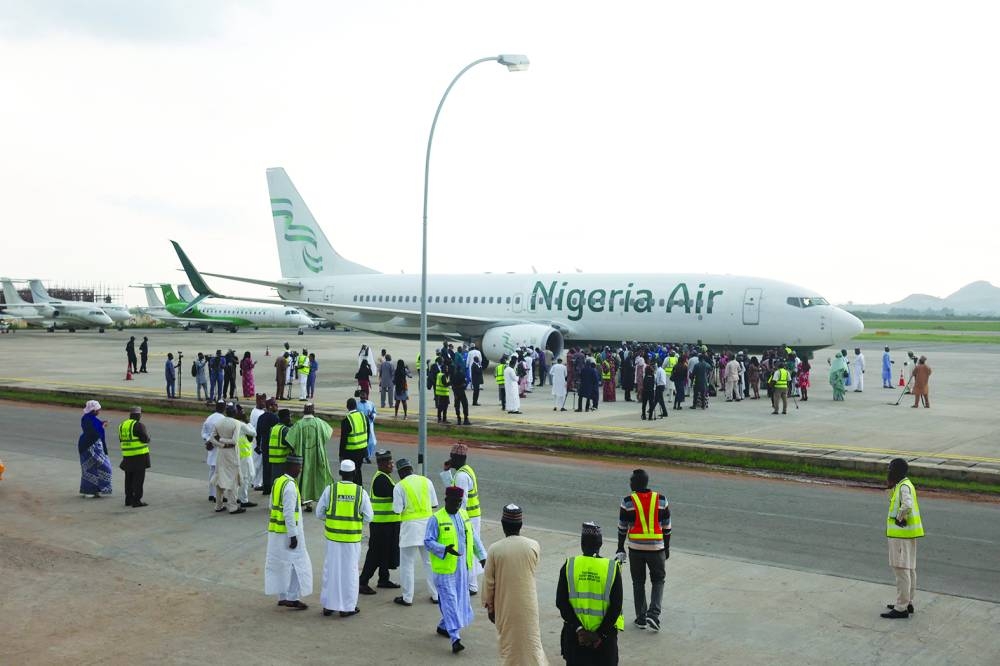Africa has a solid foundation to support the case for improving aviation’s contribution to the continent’s overall development.
Pre-Covid, aviation supported 7.7mn jobs and $63bn in economic activity in Africa, and projections are for demand to triple over the next two decades.
Africa accounts for 18% of the global population, but just 2.1% of air transport activities including cargo and passenger segments. Africa faces several challenges in its aviation industry.
Infrastructure constraints, high costs, lack of connectivity, regulatory impediments, slow adoption of global standards and skills shortages affect the customer experience and are all contributory factors to African airlines’ viability and sustainability. The continent’s carriers suffered cumulative losses of $3.5bn during the 2020-2022 period.
Moreover, the International Air Transport Association (IATA) estimates further losses of $213mn in 2023.
Another major challenge faced by African aviation is the rapidly rising levels of blocked funds, which are a threat to airline connectivity in the continent.
Currently $1.5bn in airline funds remain blocked across the continent.
That said, since 2018, a significant amount of blocked funds have been repatriated from Angola, Ethiopia, Ghana, Nigeria, and Zimbabwe through working with the respective governments.
“Blocked funds have reached a critical point in Africa,” pointed out Kamil al-Awadhi IATA’s vice-president (Africa and the Middle East).
“Every penny counts for the airline industry. By failing to pay their bills for air transport, these governments (in Africa) are putting industry in a tighter position. Airlines pulling out (of Africa) reduces connectivity, leads to higher ticket prices, affects investor confidence and results in the collapse of the domestic travel agency businesses,” al-Awadhi noted.
Blocked funds refer to money held by governments, often as a result of regulatory requirements or economic policies, which prevent airlines from freely accessing or repatriating their earnings from certain countries including many in Africa.
Obviously, blocked funds severely impact an airline's cash flow. When a significant portion of their revenue is locked in a foreign country, it limits their ability to cover operational expenses, invest in new equipment, or expand their services.
When funds are blocked, airlines find themselves in a financial bind, especially if they are unable to convert their earnings into a usable currency. This leads to reduced profitability, delayed payments to suppliers, and difficulties in meeting financial obligations.
Blocked funds hinder an airline's ability to maintain and upgrade its fleet. This results in delayed maintenance schedules, reduced safety margins, and decreased competitiveness in terms of service quality.
Without access to their earnings, airlines may find it challenging to invest in new routes, purchase additional aircraft, or expand their services in the affected countries. This limits their ability to tap into potentially lucrative markets.
Prolonged blocking of funds leads to a serious financial crisis for airlines, potentially pushing them towards bankruptcy. The inability to meet financial obligations or invest in critical areas of operation will have severe consequences for an airline's viability.
Worse still, airlines face uncertainty regarding when or if they will be able to access their blocked funds. This lack of clarity often makes it difficult to plan for future and make strategic business decisions.
Recently, IATA launched ‘Focus Africa’ to strengthen aviation’s contribution to Africa’s economic and social development and improve connectivity, safety and reliability for passengers and shippers.
This initiative will align private and public stakeholders to deliver measurable progress in some key areas such as safety, infrastructure, connectivity, finance and distribution, sustainability and future skills.
At the IATA’s World Air Transport Summit in Istanbul in June, IATA’s Director General Willie Walsh noted: “Airlines cannot continue to offer services in markets where they are unable to repatriate the revenues arising from their commercial activities in those markets.
“Governments need to work with industry to resolve this situation so airlines can continue to provide the connectivity that is vital to driving economic activity and job creation.”
Pratap John is Business Editor at Gulf Times. Twitter handle: @PratapJohn

People near the Nigeria National Air flight at the Nnamdi Azikwe International Airport in Abuja (file). Infrastructure constraints, high costs, lack of connectivity, regulatory impediments, slow adoption of global standards and skills shortages affect the customer experience and are all contributory factors to African airlines’ viability and sustainability.

